Sometimes, someone comes along and joins a family though there is no blood relation. Such was the case with Ernest. He needed a family and a family needed him.
Ernest was born in Illinois in the spring of 1877 to Louis and Sylvina Toland Parker. His parents divorced a few years later, and he was sent from one relative to another. When a cousin headed west in 1888, eleven year old Ernest went with him. My mother’s heart breaks at the thought of him being cast aside by family to face the hardships and dangers of the trail. Crossing the country in the 1800’s looked a lot different than today.
The cousins made their way to Chehalis County, Washington. Ernest stayed with the Keiler family. Ten years later in April of 1898, he enlisted at Camp Rogers, Tacoma, Washington, to serve in the Spanish American War. He had a narrow escape when his horse was shot out from under him, and even survived drinking water from which maggots were skimmed off the top. His discharge came in March of 1901 in San Francisco.
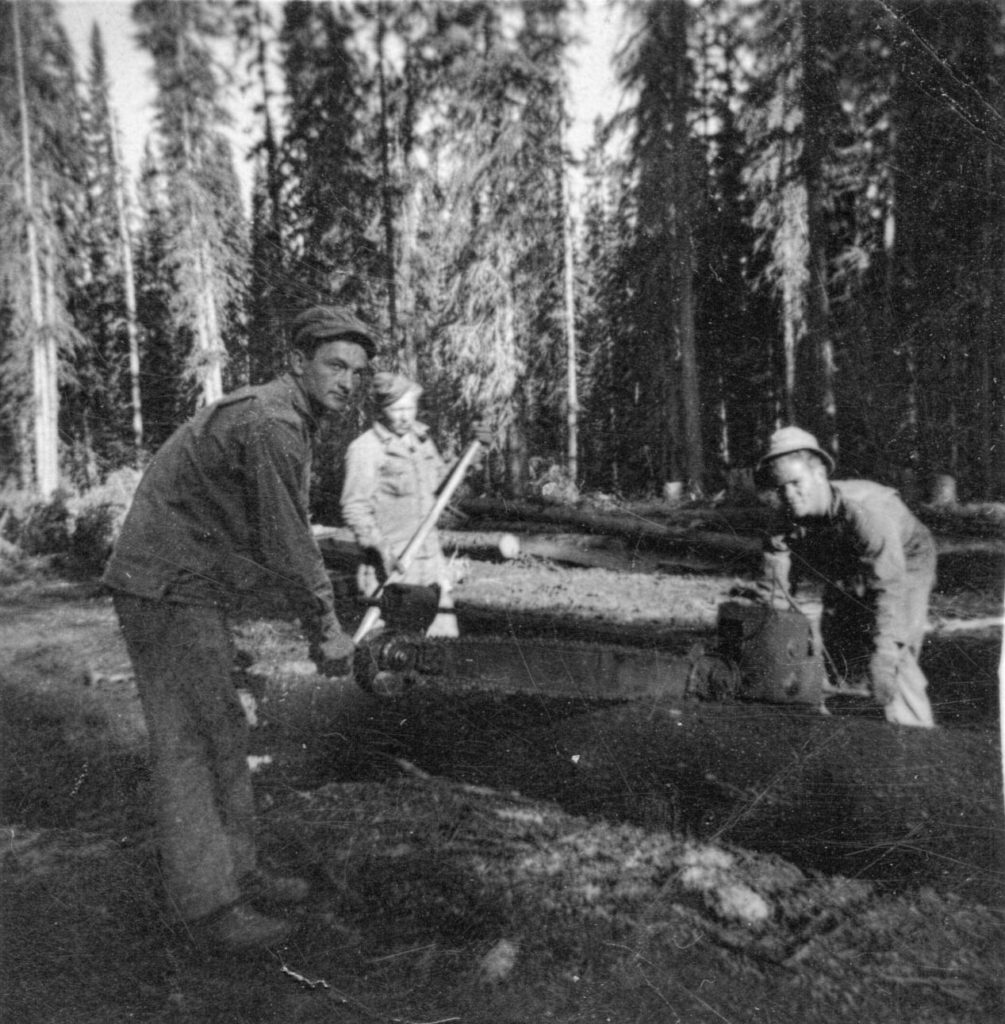
Upon his return from war, Ernest worked in the timber business in Washington. He is listed in the 1910 census in Thurston County, Washington as working in a sawmill. He reunited with his brothers and spent time farming with them in Milton, Kansas. Still, he did not find a place to settle down and call home, that is, until he found his way to Montana.
He first landed a job with Leo Cremer in 1913. From there, he worked on the Blakeman ranch where he met the little Englishman, Bud Ward. The two became fast friends, business partners and family. It is said that Ernest, “studied a map of Montana, saw a spot where mountains circled valleys like a horse shoe, put his finger in the middle of the circle and said, ‘By the Great Horn Spoon – that’s where I’m going to live.’” He did and discovered a place called home.
Ernest was more than just a partner to Bud. He was more than the resident of the bunkhouse, he was family. Just months after forming the partnership in the Ward & Parker Sawmill, he was initiated for baby duty. In March of 1917, little Jack decided to surprise Bud and ‘Niter and make an early appearance. Even though the snow was up to the roof of the house, Ernest was sent to the ranch to get Granny Brannin. They had to cut steps into the snow in order to get out. Though the ranch was only two miles away, it took quite some time for the journey. It was the next day before Granny was able to get there. By that time, tiny Jack was sleeping in a tiny shoe box near the stove.
War broke out again and Ernest, along with Bud, enlisted for duty in World War I. Enlisted at Ft. George Wright, Washington on November 29, 1917, Ernest was assigned to the 20th Engineers. His years of working in timber and sawmilling was a needed skill. After being discharged, he headed back to the mountains that called his name. His home was with the Ward family.
Ernest was the one who taught “Niter” to cook and filled in when she was sick or away. When the kids came along, he got the title of babysitter. He even taught little Barbara her first words, “Shut up.” In all fairness, it was because he had the duty to calm the little tyke down when she had colic. Ernest laid the little girl on her belly across his lap, patted her, and said, “Shut up Squall cat.”
The place up the canyon was always busy with comings and goings. As he worked, whether it was firing up the steam boiler at the sawmill, doing chores, herding kids, or whatever, it was done with vigorous whistling accompanied with colorful language that painted the wind.
He attacked life with vigor. One time the bunk house was plagued with bedbugs, no doubt brought in by some of the lumber haulers who often bunked down for the night. Ernest lit smudge pots of sulphur. All that did was make the bedbugs mad and hungry. He said, “Now that’s the Devil to pay and no pitch hot.” He got just as mad at those bedbugs. He closed the windows, filled the crack under the door and threw more wood on the fire. Throughout the morning, he left the steam boiler at the sawmill and headed to the bunkhouse to add more fuel to the fire. The plan worked. After the bunkhouse roof burst into flames, the bedbugs raised their white flag in surrender. Ernest won that war!
Ernest was a member of Sweet Grass American Legion Post No. 19. He served as post commander, district commander, department adjutant and attended several national conventions. He as served as commander of the Montana Spanish American War Veterans.
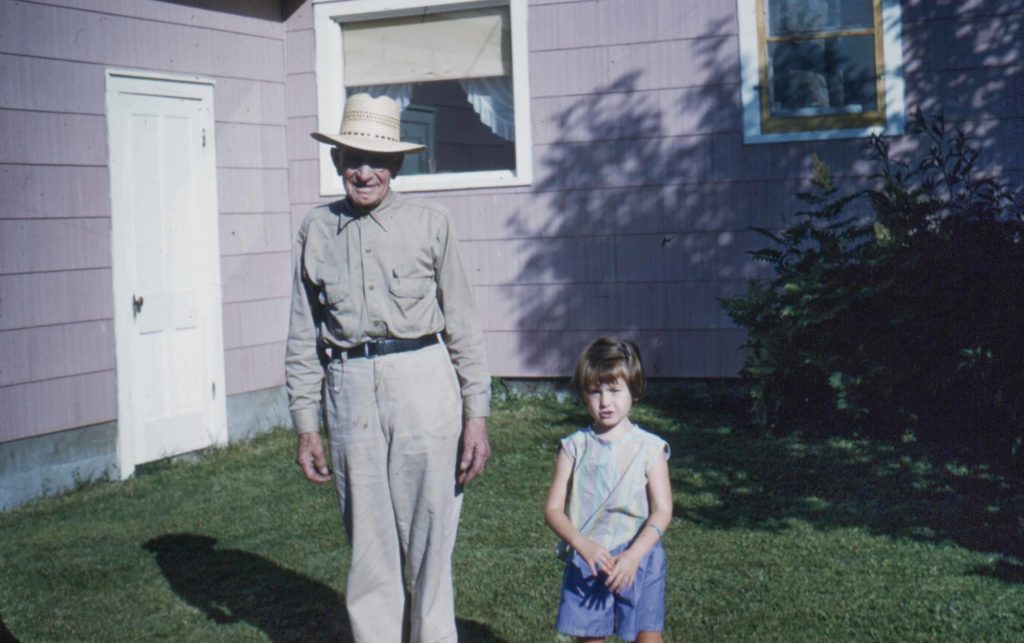
Though I only saw Ernest a few times, he was as much family as anyone else. He was very fond of my grandmother which was reason enough to earn my endearment. After Bud died, ‘Niter and Ernest moved to town. He lived in the little pink house beside the big house. I remember him always wearing the khaki colored pants and shirt. He was a small man and had wrinkles. I guess the last time I saw him was after he went to live in the nursing home. Through the years, I have heard many tales of him. He left a legacy of giving. He had a heart as big as the whole outdoors. Ernest maintained a special bond with the little “Squall cat” all of his life. An occasional letter to my dad was filled with compassion and concern for others. What a special member of the family!
It is said he was a “hardy pioneer breed who understood how to live life with a zest and twinkle,” and he knew how to find a family.
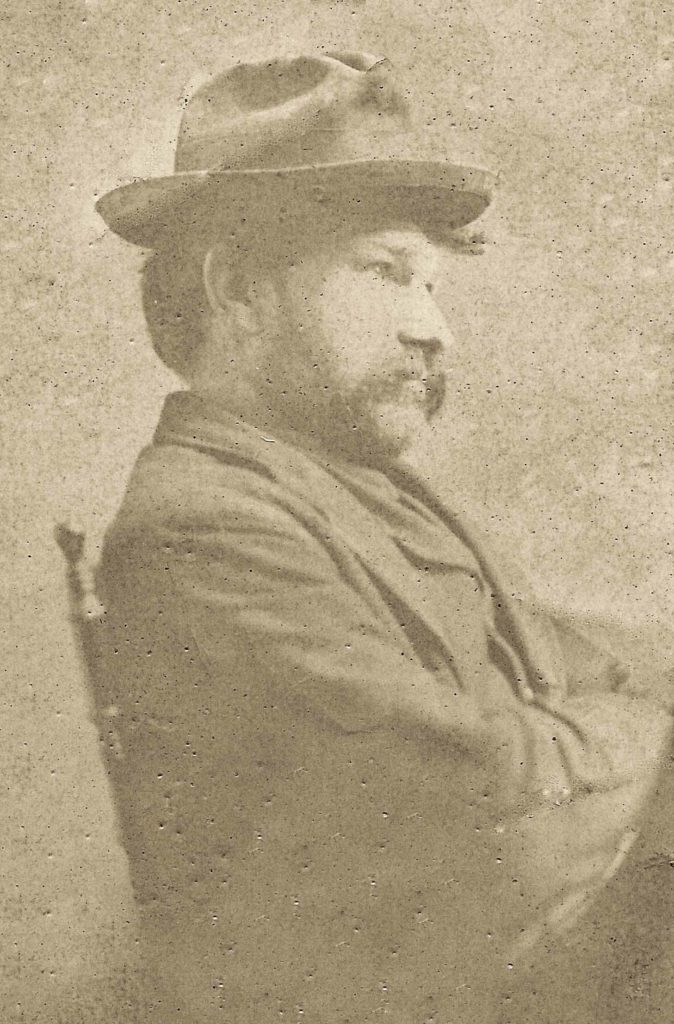
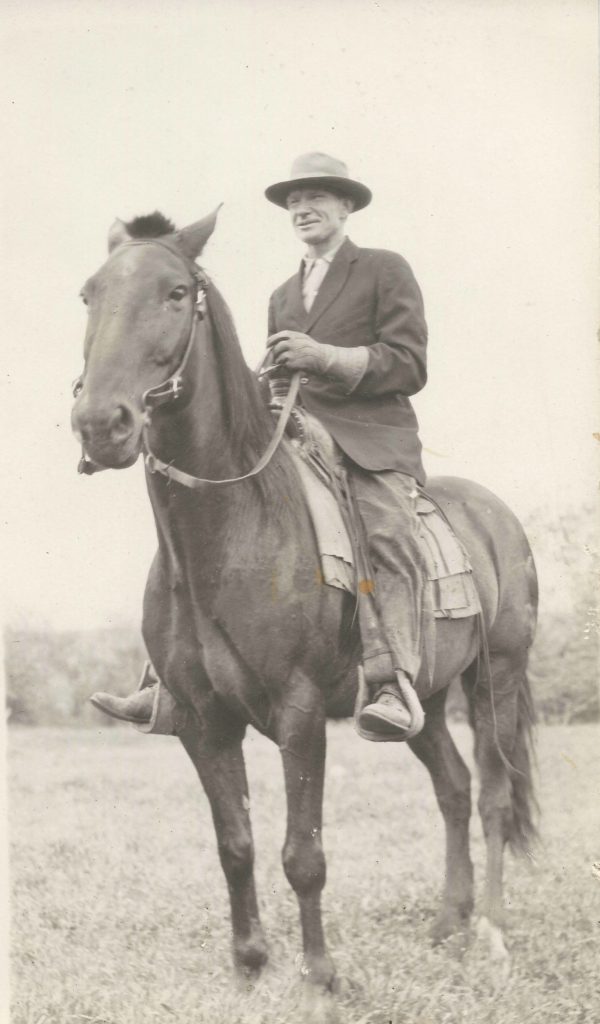
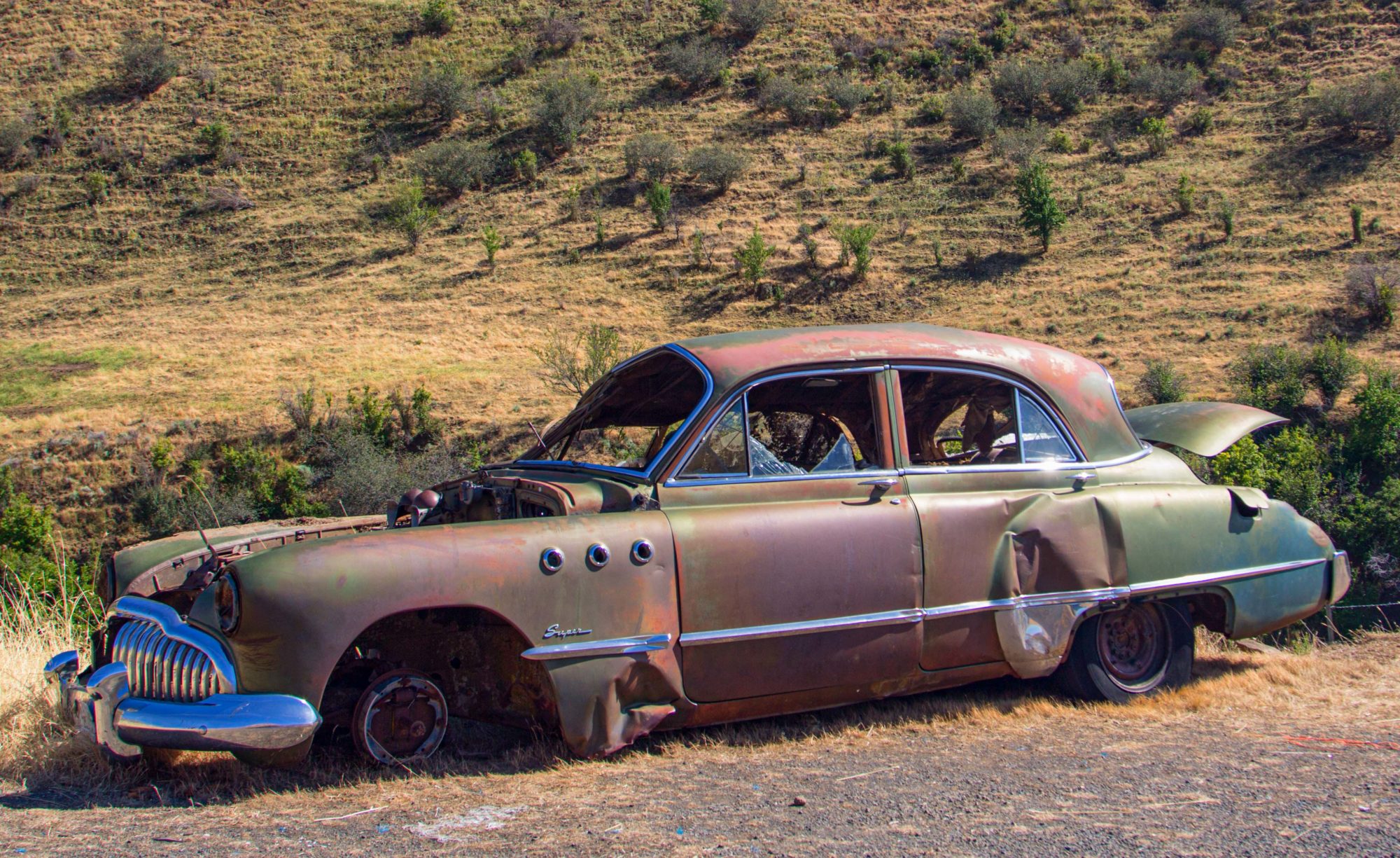
Thank you for the history of Ernest.
What a wonderful man he was. I always wondered what his story was, makes me cry to think people treated there children so badly. We always loved the trips to Aunt Babes, remember most Uncle Bud in the rocking chairs with his pipe and Ernest lot of time puttering in kitchen. I’m so grateful we have you Shari to tell us these stories.
Thanks for sharing your memories. I never knew Poppy so the memories of others help paint a better picture for me.
Oh Sheri ! That is a fine tribute to a fine man ! He was so much a part of the family I really didn’t think much about it. He was just there. Thank you SO much for sharing !!